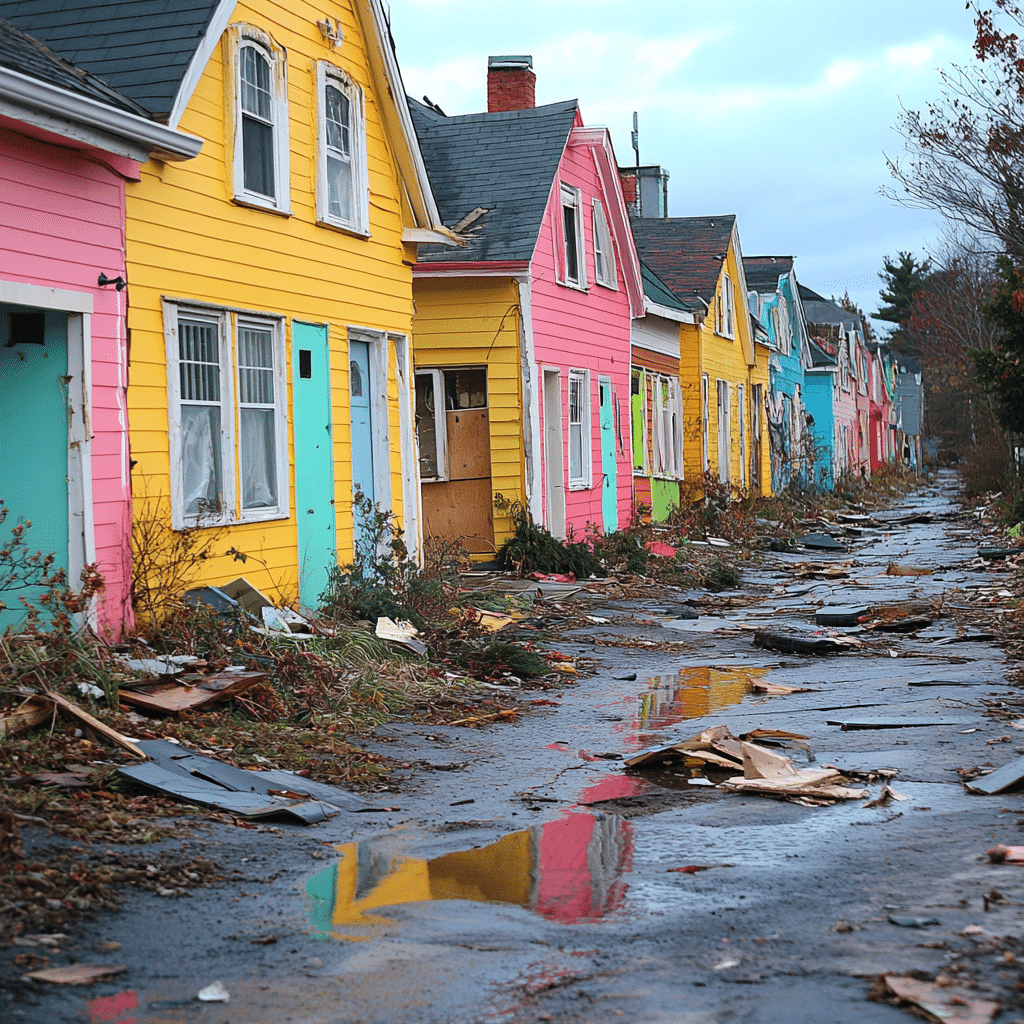Understanding the cyclical nature of the housing market is crucial, especially when considering “when did the housing market crash?” The most significant crash occurred between 2007 and 2012, driven by risky lending practices. This crash led to a wave of foreclosures and a dramatic drop in home values. By examining this historical crash and its consequences, we can better grasp the landscape we live in today.

1. Key Historical Moments: When Did the Housing Market Crash?
The chronology of home value fluctuations is vital. The 2007 crash, often dubbed the subprime mortgage crisis, was a turning point. Poor lending practices allowed many individuals to secure mortgages without the ability to repay them. This irresponsible lending triggered a wave of foreclosures, and as homes flooded the market, values plummeted.
During this time, many families lost their homes, and millions watched their equity vanish overnight. The repercussions were profound, leading to tightened lending standards and a more cautious approach among consumers. Recognizing these key moments in the housing market provides valuable context for current and future trends.

2. The 2020s Housing Boom: Have House Prices Gone Up in the Last 4 Years?
In a twist of fate, after the pandemic, we witnessed a surprising boom in the housing market. Data from the National Association of Realtors reveals that median home prices soared. For instance, in places like Boise, Idaho, prices shot up as much as 30% annually through 2022.
This increase stemmed from various factors, including a shift to remote work and the “urban flight” phenomenon, where people opted for suburban living over city life. With a surge in demand for larger spaces, buyers flocked to these areas, driving up prices. The question lingers: “Have house prices gone up in the last 4 years?” The answer is a resounding yes.
3. Is the Current Housing Market Going to Crash?
As we look to the future, an essential question arises: “Is the current housing market going to crash?” Various economic indicators come into play, including interest rates and consumer sentiment. According to Zillow, while specific markets may experience cooling, a nationwide crash appears unlikely for the time being.
Ongoing demand and limited supply present critical factors. Many experts suggest that the housing market will correct itself gradually rather than experience a full-blown crash. Understanding these dynamics is crucial for both potential buyers and current homeowners.
4. When is the Housing Market Going to Crash? Insights and Predictions
A frequent question on many people’s minds is: “When is the housing market going to crash?” Predictions are mixed. Some analysts hint at a possible correction around 2025, fueled by Federal Reserve interest rate hikes designed to combat inflation.
On the other hand, demographic trends, especially among millennials entering the homebuying phase, could prop up the market. This age group represents a significant portion of buyers, and their influence on demand can’t be overlooked. Keeping an eye on these trends will help shape future expectations.
5. What Experts Say: When Will the Housing Market Crash Again?
When pondering: “When will the housing market crash again?” economic experts provide a variety of forecasts. Notable economist Mark Zandi from Moody’s Analytics suggests while localized downturns may happen, the overall market should remain stable if employment levels hold high and lending practices stay sound.
It’s essential to keep track of employment trends and consumer purchasing power. As long as these fundamentals remain strong, fears of a significant crash might be overblown. However, staying informed is key for anyone involved in the real estate sector.
6. Regional Variations: Tracking Housing Market Trends
The housing market’s behavior varies from one region to another. For example, cities like San Francisco and New York experienced noticeable price corrections post-pandemic. Conversely, areas like Austin, Texas continued to thrive, enjoying steady price growth.
Understanding these regional variations aids homeowners and investors in navigating investment decisions. It’s not a one-size-fits-all, so recognizing local market dynamics is critical. Those looking to buy or invest should pay close attention to these trends.
7. Consumer Behavior Post-Crash: What Changed?
The wake of the last housing crash changed consumer behavior dramatically. Today’s homebuyers are more cautious, often prioritizing stability and affordability over a flashy home. A survey by the Urban Institute highlights that many millennials lean towards renting rather than buying due to rising interest rates and housing affordability concerns.
This shift signifies how profoundly past experiences can shape present decisions. As we brush against financial uncertainties, many are reevaluating their approach to homeownership, affecting the current market.
8. The Road Ahead: Lessons Learned from Past Crashes
Reflecting on the past, we must consider lessons learned. Following the crash in 2008, regulatory changes emerged to improve transparency and eliminate risky lending practices. As we move forward, addressing current consumer concerns about housing affordability and sustainable growth will be crucial.
As we step into 2024, it’s essential for buyers and investors to stay informed about historical trends and economic indicators. Understanding previous market behavior can guide decisions in today’s unpredictable landscape. By being proactive and educated, you can navigate the ever-shifting housing market with confidence.
In closing, comprehending “when did the housing market crash” isn’t just about looking back; it’s about assessing the present and preparing for the future. With the lessons of the past in mind, you can make informed decisions in the housing market to secure a stable financial future. Whether you’re considering a home purchase or simply want to stay informed, taking these insights to heart can be your path forward. As always, consult with experts and stay informed on trends to navigate this dynamic market effectively.
When Did The Housing Market Crash: Trivia and Interesting Facts
A Brief Timeline
When did the housing market crash? Most folks mark it as 2007-2008 when home prices tumbled and foreclosures skyrocketed. Imagine a rollercoaster ride, only instead of thrills, it left many families stranded in a tough financial situation. The crash wasn’t just a blip on the radar; it reshaped American homeownership. Interestingly, before this crash, the Homestead Act had a significant impact on property ownership. Curious about what it actually was? Check out this piece on What Is The homestead act to see how land ownership evolved since the 19th century.
Fun Facts About The Market
Did you know that the traditional 30-year mortgage became a staple post-World War II, allowing many families to buy homes? Fast forward a few decades, and the rise of subprime mortgages led to a housing bubble that eventually burst. Want to know where mortgage rates stand now? Look at today’s 30-year fixed mortgage for the latest information. But that’s not all—foreclosures weren’t the only problem. The market faced a slew of property liens, which complicated the road to recovery. You can read more about it in property lien.
What Came After?
After the crash, many folks were left wondering about their options, including forbearance plans. What’s that all about? It’s worth diving deeper into the definition For forbearance as it became a lifeline for countless homeowners grappling with payments. The number of manufactured homes also saw a rise in popularity as they offered an affordable alternative. If you’re curious, explore What are manufactured Homes to see why they caught on during economic struggles.
So, when did the housing market crash? The answer isn’t just a date; it represents a turning point leading to a myriad of changes in home finance, property ownership, and community stability. Inflation, for instance, tends to ebb and flow, but many are still left asking, will inflation go down? The answer could shape how the market behaves in the not-so-distant future.




